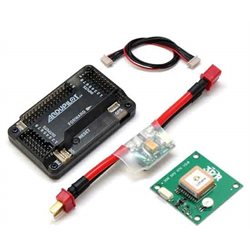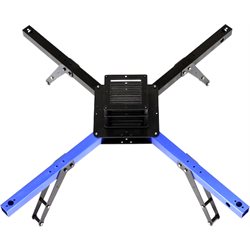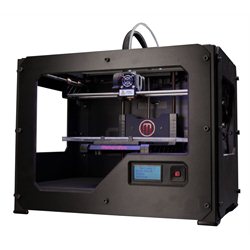3D Robotics & the Maker Movement

 RobotShop recently partnered with 3D Robotics / DIY Drones a manufacturer of open-source UAVs, founded in 2009 by Chris Anderson and Jordi Munoz. 3D robotics is popular for three main reasons:
RobotShop recently partnered with 3D Robotics / DIY Drones a manufacturer of open-source UAVs, founded in 2009 by Chris Anderson and Jordi Munoz. 3D robotics is popular for three main reasons:
- Their UAV flight controllers and software have been developed with the community and have evolved to the point where they are incredibly popular, easy to use / incorporate.
- They have a large, active user community which helps members troubleshoot, design and improve products. The information available via their site is almost critical if you are looking to build a UAV.
- Their products are open source - meaning anyone can reproduce the products themselves so long as they don't reuse the name and stay within the parameters of "open source licensing".
Today, inventors increasingly share their innovations publicly without any patent at all [...] because the creators believe they get back more in return than they give away: free help in developing their inventions.Before developing its own software for its 3D printers, much of the user community used open-source programs such as ReplicatorG, which is still very popular and is compatible with a wide variety of 3D printers. Many of the 3D printer designs were also open-source, encouraging the community to try and improve upon the designs. Software such as LinuxCNC has allowed Sherline to more easily create tabletop CNC machines. Software such as "Arduino" has not only made Arduino microcontrollers popular, but has allowed others to create hardware without the need to invest in developing their own programs. This is still just the beginning. This approach of "sharing information" is at the core of companies like Arduino (electronics), MakerBot (3D Printers and parts) and DIY Drones (UAVs) which have all been major forces in improving and furthering their respective fields. Don't be surprised to see fewer "big players" and more "small players" catering to (and often advancing) harder to access markets- Excerpt from Makers: The New Industrial Revolution by Chris Anderson
Have you noticed this trend? What are your thoughts on open-source software and open-source hardware? Would you share the experience you gained creating a new product openly with others, and do you appreciate when a manufacturer makes its designs openly available? We welcome your comments below.
Thanks for helping to keep our community civil!
Notify staff privately
You flagged this as spam. Undo flag.Flag Post
It's Spam
This post is an advertisement, or vandalism. It is not useful or relevant to the current topic.
This post is an advertisement, or vandalism. It is not useful or relevant to the current topic.
You flagged this as spam. Undo flag.Flag Post






